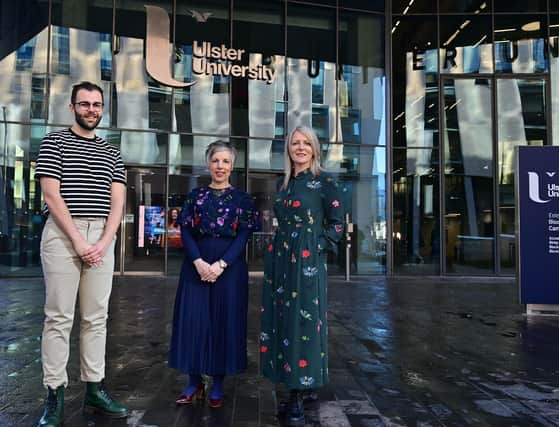Ulster University and partners launch new resource to support parents in end-of-life care


Partnering with Lisa Strutt, a leadership coach and bereaved mum, and the Lyric Theatre, the videos have been developed by Ulster University’s Cancer Care Research Group, part of its Institute of Nursing and Health Research.
This is an expansion of the programme of work Ulster University has delivered in partnership with Kings College London and Marie Curie, including a guide with tips for healthcare professionals to support parents at end of life.
Advertisement
Hide AdAdvertisement
Hide AdThe guide highlights the importance of families’ forward planning, maintaining a routine, using plain language and not giving false hope to children when a parent is at end of life with cancer.
The videos also build on the ‘Talking, Telling, Sharing’ End of Life Communication Framework developed by the university, and designed to help professionals open the conversation with families when sharing a significant adult’s poor cancer prognosis with dependent children.
Reader in Clinical Cancer Nursing at Ulster University and the Family-Centred Cancer Care programme lead, Dr Cherith Semple, explained:
“These are unimaginably difficult and emotional moments for parents who are coming to terms with their poor cancer prognosis and often torn between wanting to be open and honest but also protective of their family and especially young children.
Advertisement
Hide AdAdvertisement
Hide Ad“As painful as that is within families, we also recognise these are emotional conversations for staff. Professionals need equipped in this hugely important aspect of care and these co-created videos provide professionals with reassurance, confidence, tools, and a language that we very much hope will equip and enable them to support parents at end of life to have difficult, honest and open conversations with their dependent children”.
Lisa Strutt, a campaigner who lost her husband to pancreatic cancer, worked collaboratively with Ulster University to develop these videos. She said: “I’m pleased to have played a role in sharing my own experience of cancer, death and dying and to put it to good use through the creation of these video resources for Ulster University’s Family-Centred Cancer Care end of life conversations work.
"I think it’s important that lived experience is incorporated in all our efforts to provide better support to families where a significant adult has cancer with caring responsibilities for dependent children.
"Guiding my own teenage children through profound grief and loss over the last three years has taught me much and I am grateful to have had an opportunity to put this learning to good use for the benefit of others.”
Advertisement
Hide AdAdvertisement
Hide AdCancer Fund for Children’s director of services, Neil Symington, said:
“They are powerful videos, they are emotional, but they are real and will be such a vital resource to healthcare professionals and indeed staff within our own charity.”
To watch the videos rom the Family-Centred Cancer Care Research Group, visit: www.ulster.ac.uk/fccc